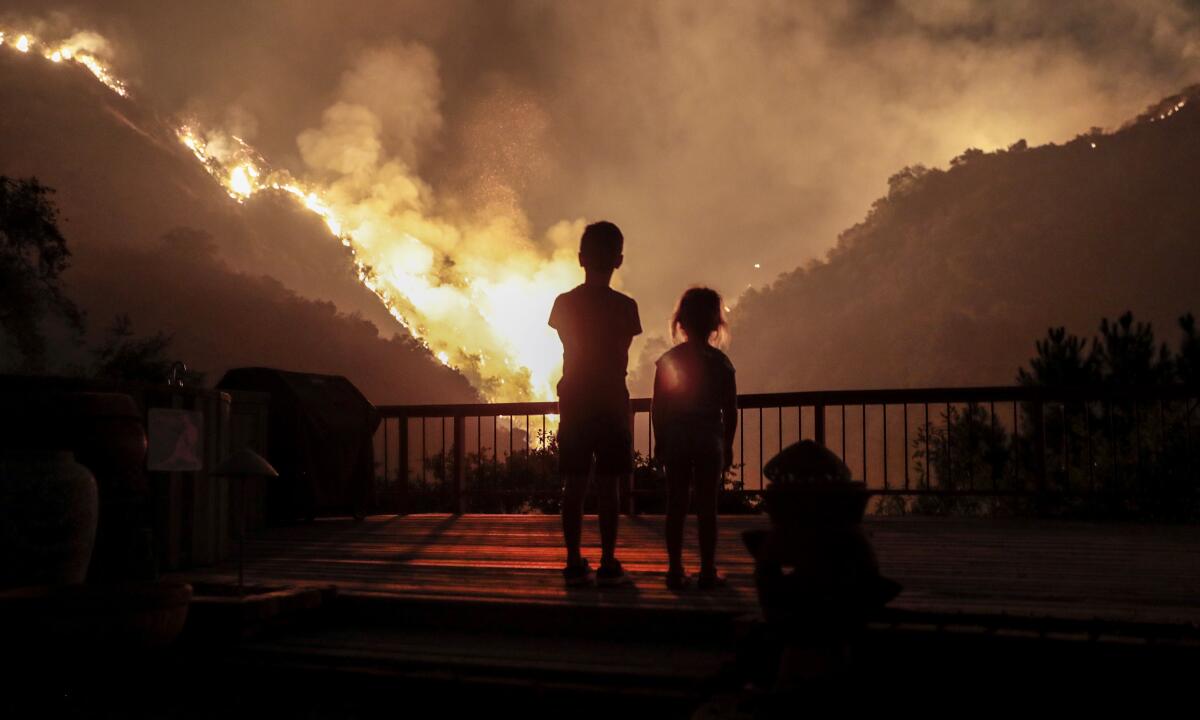Editorial: Will humanity heed this ‘code red’?

- Share via
As if to confirm that this summer’s record-breaking heat waves, flooding and wildfires are no freak occurrences, the United Nations released a dire report Monday concluding that the world has moved too slowly to stop global warming and the increase in extreme and deadly weather events. “A code red for humanity,” the report says.
But there’s hope. We can still prevent the worst devastation with radical action to cut carbon emissions over the next decade.
That will take ambitious and committed leadership from the U.S. and other industrialized nations — and a reversal of political lethargy that has slowed progress since the Paris climate agreement in 2015. As of now, the nations responsible for the most emissions are still not cutting carbon fast enough. One test of that leadership will come in November, when world leaders will meet at a United Nations summit in Scotland to hammer out another round of climate pledges.
It could be the last chance for world leaders to band together to fight climate change. The path forward is clear, though not easy or cheap: Phase out gas- and diesel-fueled cars and trucks and accelerate the deployment of zero-emission vehicles. Stop building homes and businesses powered with natural gas. Stop construction of coal-fired power plants across the globe. Ensure every corner of the world has access to renewable energy. Cut methane emissions from oil wells, landfills and farms. Invest in research to develop technologies that can remove carbon from the atmosphere.
The report, which is the sixth assessment from U.N.’s Intergovernmental Panel on Climate Change since 1990, asserts that the consequences of human-driven climate change are already being felt at unprecedented levels across the globe. And those changes are only going to accelerate. The report warns of increased frequency of climate extremes such as heat waves, droughts and heavy precipitation in nearly every inhabited region. Compared with the panel’s last report, issued in 2014, extreme weather events are occurring more frequently and are projected to worsen.
Human activity has already caused the planet to warm by 1.1 degrees Celsius, or nearly 2 degrees Fahrenheit, since 1850, according to the report. Climate experts agree that a global rise in temperature beyond 2 degrees Celsius would be catastrophic for life on Earth. If warming is not mitigated before then, sea level rise would displace significant portions of the global population. Extreme heat and drought are already on course to threaten agricultural production, particularly in western North America, northeastern South America, and across Africa.
World leaders have sought to limit the temperature rise to 1.5 degrees, to avert the worst effects. But progress hasn’t been good. In 2019, recorded atmospheric concentrations of carbon monoxide were at the highest levels in the last 2 million years. Unless emissions are significantly reduced in the immediate future, global warming of 2 degrees Celsius will occur within this century.
How many more dire warnings will it take? How many summers will the world watch in horror as forests burn and streets flood? We are fast approaching our last chance to save the planet from calamity.
More to Read
A cure for the common opinion
Get thought-provoking perspectives with our weekly newsletter.
You may occasionally receive promotional content from the Los Angeles Times.










